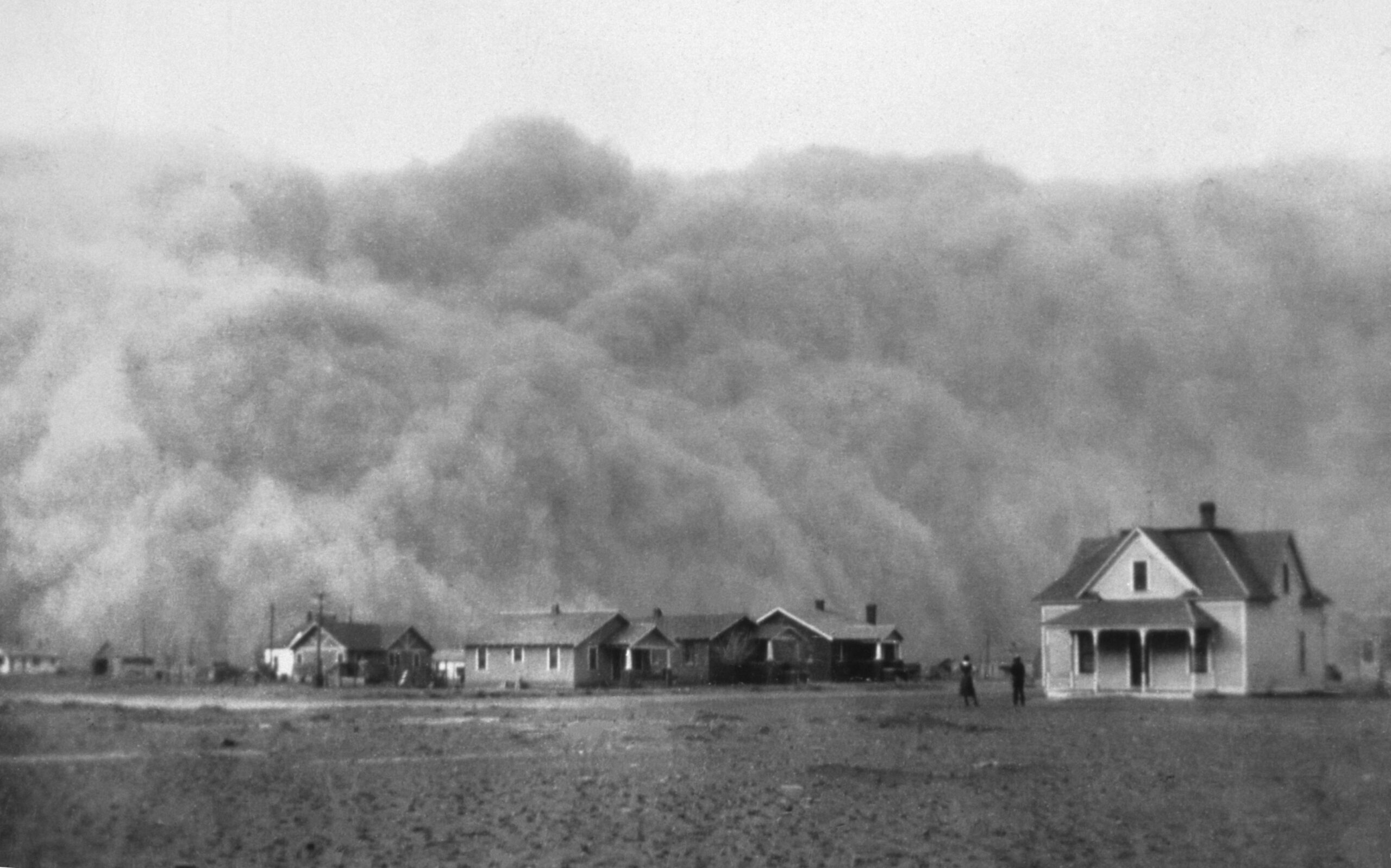A devastating environmental disaster affected the Great Plains on April 14, 1935, becoming one of the U.S.’s most tragic historical events. The mighty Black Sunday storm swept through Oklahoma, Texas, Kansas, and Colorado with 300 million tons of topsoil. The afternoon sky darkened completely as winds exceeded 60 miles per hour.
Those outside reported they could not see their hands even when holding them directly in front of their faces. The severe dust storm caused birds to perish mid-air because of suffocation from the dense dust particles. People in their homes used wet cloths to block doorways and window openings while the dust penetrated and accumulated fine silt throughout their homes.
Black Sunday was not an isolated event but the climax of years of preventable ecological destruction. When combined with severe drought, poor farming practices had turned the once fertile plains into a wasteland. When the winds came that Sunday afternoon, they lifted the dry topsoil in dense clouds, blocking the sun for hours.
The storm’s impact was devastating since:
- Farmers watched helplessly as their remaining crops were buried under feet of dust
- Livestock suffocated or went blind from the constant dust exposure
- Respiratory illnesses like “dust pneumonia” became rampant, especially among children
- Thousands of families packed what little they could carry and fled west, becoming known as “Okies.”
Americans reacted to the nightmare of Black Sunday by taking the necessary steps. The federal government, recognizing the severity of the situation, founded the Soil Conservation Service (Natural Resources Conservation Service) to help develop better land management techniques. New agricultural methods known as crop rotation combined with contour plowing were introduced to stop future natural disasters. Today, Black Sunday is a reminder of nature’s power and the consequences of environmental mismanagement.

